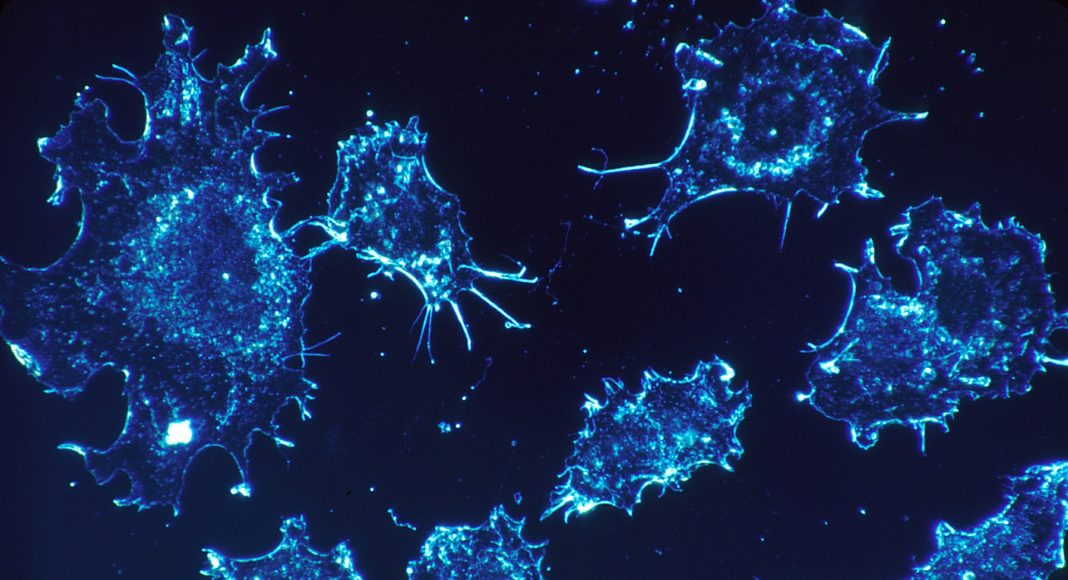Recent estimates put the international cannabis market at $31.4 billion by the year 2021. Even more noteworthy, the medical marijuana market is expected to reach $55.8 billion in value by 2025, with a compound annual growth rate of 17 percent.
These numbers are catching the attention of startups, healthcare giants and investors alike. While many of the benefits of medical marijuana are already being put to good use, researchers are discovering new uses that have the potential to change medicine as we know it.
Today, medical marijuana is used in a variety of cases. In the midst of an ongoing opioid crisis, medical cannabis can offer a pain management alternative to those who are chronically suffering. Death rates from opioid overdoses in states with medical marijuana dispensaries decreased by about 25 percent upon legalization. The drug is also currently being prescribed by doctors and caretakers to help treat cancer-related symptoms or side effects of cancer treatment. Cannabis provides pain management and other benefits that are far less risky than other drugs on the market, and there are indications that it has the potential to offer even more.
Why Research Matters
There is broad consensus on the palliative benefits of medical marijuana, and recent studies have also uncovered potential antitumor effects of the drug. This comes at an important time, as cancer cases are projected to increase by 50 percent worldwide by the year 2030 compared to 2012 rates. There are risks and potential side effects associated with every type of drug therapy, but current options for cancer treatment are especially harsh. Chemotherapy and radiation can produce side effects ranging from fatigue, hair loss, nausea, infection and more.
-
Related Story: Marijuana 101: How Can Kief Be Used Medically?
We must conduct large-scale research studies on cannabinoids to provide the medical community with vital information to best serve their patients for palliative care and beyond. Over 100 types of cannabinoid compounds have been identified to date, yet the effects of each of these strains are not well-understood, and 9 out of 10 physicians still feel that they do not have enough information about medical marijuana to effectively prescribe the drug.
Cancer patients can seek relief from treatment effects with medical marijuana, but with cancer rates on the rise and major drawbacks to existing therapies, it’s worth investing more resources into better understanding the cancer fighting potential of cannabis.
Early Anti-Cancer Of Cannabinoids
Available data is still somewhat limited, but research shows that there is great promise around the antitumor effects of cannabinoids. As far back as 2009, a Spanish research group found that tetrahydrocannabinol (THC) induced the death of various brain cancer cell lines and primary cultured cells. The International Journal of Oncology published a study last year indicating that cannabinoids successfully kill cancer cells. We conducted an early preclinical study, and the data demonstrated that the two main active compounds in cannabis – THC and tetrahydrocannabinolic acid (THCA) – were successful in attacking cancer cells. These studies show the power cannabinoids may have in inhibiting tumor growth.
Anti-Cancer Research Should Be Prioritized
Fortunately, along with impressive market projections over the next 10 years, medical marijuana research efforts and investments are expanding worldwide. As one of the first countries to support research and to legalize the manufacturing of medical marijuana, Israel stands out as a leader in the space and will soon open a 1 million square foot cannabis growth, research and development facility – one of the largest in the world. Pharmacies in the country have also recently started dispensing medical marijuana, which was previously only available at select medical centers.
Medicinal marijuana use in Canada has been legal since 2001, and the country is another leader in research and major pharmaceutical investments. The Canadian subsidiary of Novartis, the world’s fourth-largest pharmaceutical company, recently signed the first-ever strategic partnership with a cannabis company to develop and distribute medical marijuana products.
-
Related Story: Is Marijuana Worse Than Tobacco For Cardiovascular Health?
In the United States, medical marijuana is legal in more than half of all states, but the federal government still classifies marijuana as a Schedule 1 drug—a category for substances with high potential for abuse and no accepted medical purpose. This categorization has slowed research in the country, with only one marijuana farm currently approved for the cultivation and procurement of research-grade cannabis. Even so, there are early indications that the United States is catching on to the potential of medical marijuana, as the Federal Drug Administration is imminently expected to approve the country’s first marijuana-derived drug.
It’s encouraging to see patient access to medical marijuana expand as more funding is invested in research and development across the globe. Governments, researchers, pharmaceutical companies and startups participating in the rapidly growing market would be wise to focus funding and research efforts on cannabis as a potential treatment option for cancer patients. Cancer rates will not begin to decline until we’re able to deploy new therapies that are effective and have fewer painful side effects than what is currently available. The medical marijuana market is exploding, and at the same time we’re searching high and low for a cancer treatment that is both effective and minimizes patient suffering. Cannabinoids just might be the answer we’re looking for.
Dr. Eyal Ballan, PhD, is co-founder and chief technology officer of Cannabics Pharmaceuticals. Dr. Ballan brings years of experience in anticancer drug research and development.


